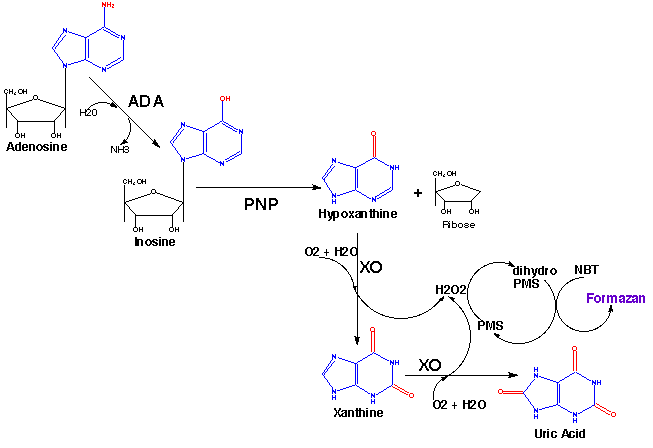
Initial presentations include recurrent and opportunistic fungal, viral and bacterial infections, lymphopenia, and a failure to thrive ( 10).


Diagnosis occurs most commonly during infancy and more than 85% of diagnoses occur during the first 6 months of life ( 7, 9). It is inherited in an autosomal recessive manner and has an overall incidence of ~1:200,000 live births ( 7). ADA deficiency is one of the most prevalent forms of SCID and accounts for 15–20% of all cases ( 1, 8). What Is ADA-SCID?Īdenosine deaminase deficiency is caused by mutations in the ADA gene, and there is a correlation between the severity of the mutation, the level of ADA activity, and the level of metabolic disturbance ( 7). However, for the purpose of this review, we will discuss only ADA1 encoded for by the ADA gene, since this is the enzyme that is implicated in ADA-SCID, and we will refer to it throughout as ADA. Mutations in ADA2 can lead to polyarteritis nodosa and other vasculopathies, and indeed some patients with immunodeficiency have been identified ( 4– 6). It should be noted that there is an extracellular form of ADA2 that is coded for by the CECR1 gene ( 3). Lymphocyte maturation and function is particularly affected and, hence, deficiency of ADA leads to a severe combined immunodeficiency (SCID) ( 1). Only by fully understanding ADA deficiency and its manifestations in all organ systems can we aim to deliver therapies that will correct all the clinical consequences.ĭeficient and impaired ADA activity results in the accumulation of metabolic substrates of which adenosine, deoxyadenosine, and dATP are of particular importance due to their profound effects on cellular function ( 2). In doing so, we aim to present ADA deficiency as more than an immunodeficiency and suggest that it should be recognized as a systemic metabolic disorder that affects multiple organ systems. We will discuss possible pathogenic mechanisms and also highlight ways in which current treatments could be improved.

This review will outline the impact of ADA deficiency on various organ systems, starting with the well-understood immunological abnormalities. However, there is now a growing body of evidence that deficiency of ADA has significant impact on non-immunological organ systems. Therapies are currently available that can target these immunological disturbances and treated patients show varying degrees of clinical improvement. Affected patients present with clinical and immunological manifestations typical of a SCID. Molecular and Cellular Immunology Section, UCL Institute of Child Health, University College London, London, UKĪdenosine deaminase (ADA) deficiency is best known as a form of severe combined immunodeficiency (SCID) that results from mutations in the gene encoding ADA.


 0 kommentar(er)
0 kommentar(er)
